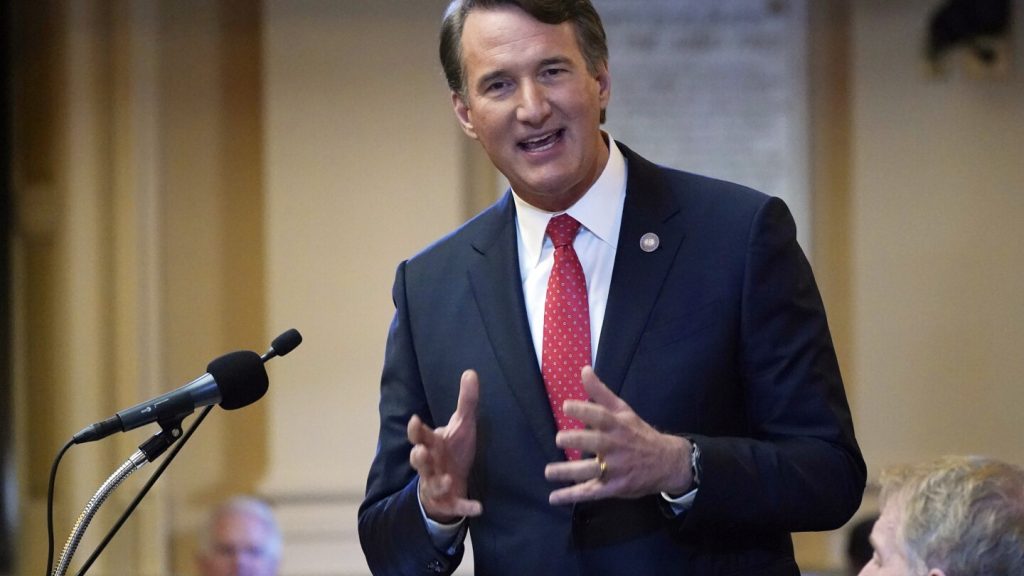Republican Gov. Glenn Youngkin of Virginia presented a new budget proposal in an attempt to find common ground with Democratic lawmakers in the state. Youngkin emphasized maintaining the current tax policy status quo and avoiding any new tax increases or cuts. He proposed eliminating a sales tax on digital goods and services, while also providing 3% raises for public workers over the next two years. The governor’s remarks were seen as an olive branch after weeks of partisan disagreements over budget issues and legislative priorities.
The proposed budget amendments by Youngkin were met with skepticism by Democratic lawmakers, with some expressing concerns about the structural balance and level of services in the budget. Despite the governor’s efforts to reach a compromise, it remains to be seen how the amendments will be received by the General Assembly. While some lawmakers praised Youngkin’s push to drop the tax on digital goods, others criticized his approach, citing his record number of vetoes as a barrier to collaboration.
The state of Virginia operates on a two-year budget cycle, with the current budget set to expire on July 1. The budget negotiations between Youngkin and lawmakers began in December when the governor initially proposed his budget plan. The General Assembly objected to his proposal, which included income tax rate reductions and an expanded sales tax. Despite disagreements, lawmakers retained some aspects of the tax policy, such as a new levy on digital goods, drawing criticism from industry groups.
Youngkin’s proposed budget amendments include record spending on K-12 public schools, increased funding for higher education, toll relief for lower-income residents, and funding for improvements on congested roads. The administration justified the revenue changes by highlighting Virginia’s strong financial position, with a AAA bond rating and healthy reserve fund balances. Youngkin’s approach to funding government services without tax increases relied on accounting mechanisms to manage spending adjustments.
The governor’s budget amendments also include provisions to fully fund Virginia’s share of the Washington Metro system’s operating shortfall and remove language related to the state rejoining a regional carbon cap-and-trade program. While Youngkin emphasized maintaining funding for key priorities like education, some cuts to K-12 spending were proposed. The governor’s decisions on other pending legislation, including proposals on taxes and legalization of betting machines, were still awaited as the deadline approached.
Overall, Youngkin’s budget proposal aimed to strike a balance between maintaining essential services and addressing taxpayers’ concerns about potential tax increases. By presenting a compromise that included eliminating certain taxes while preserving key funding priorities, the governor sought to find common ground with Democratic lawmakers and move forward with a new budget for Virginia. The outcome of the budget negotiations and the reception of Youngkin’s amendments by the General Assembly will be crucial in shaping the state’s financial future.


